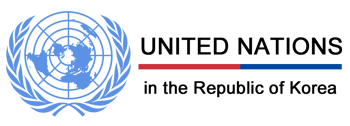SOMER-2 published
The second State of the Marine Environment Report (SOMER-2) for the NOWPAP region has recently been published. The SOMER-2 has been prepared by NOWPAP POMRAC in collaboration with other three NOWPAP RACs, based on the first State of Marine Environment Report (published in 2007) and taking into account developments in recent years. The SOMER-2 presents the current status of marine environment, assessing the marine and coastal areas of the NOWPAP region by analyzing major marine environmental problems and issues including contamination by hazardous substances through atmospheric deposition as well as river and direct inputs, oil and chemical spills, harmful algal blooms, marine litter, non-indigenous and invasive species, habitat transformation, endangered species, and climate change impacts
Korea increased annual contribution
As pledged at the 18th NOWPAP Intergovernmental Meeting, Korea increased its annual financial contribution to the NOWPAP Trust Fund to USD 125,000 (from previous level of USD 100,000). With the continuous efforts made by the NOWPAP member states in the past years, NOWPAP is currently only short of USD 25, 000 in meeting the target annual contribution to the Trust Fund of USD 500,000.
Impacts of Global Warming on Coastal and Marine Ecosystems in the Northwest Pacific
Initiated by NOWPAP and sponsored by the Asia-Pacific Network for Global Change Research (APN), the project “Impacts of Global Warming on Coastal and Marine Ecosystems in the Northwest Pacific” has been completed recently. Led by Professor Sukgeun Jung from Jeju National University, the experts from China, Japan, Korea and Russia conducted in 2012-2014 retrospective analysis of climate and oceanographic data collected during the past 40 years. The experts tried to forecast changes in potential production and habitat ranges of major commercial fish species and tried also to evaluate risks and vulnerabilities, induced by climate change, in fishery-dependent sectors of economy across NOWPAP countries.
The project confirmed that a strong climatically induced ecosystem regime shift has occurred in the NOWPAP region in the late 1980s. The project found also that the habitat ranges of five of the several commercially important fish species examined (Horse mackerel, Pacific sardine, Common squid, Spanish mackerel and Yellowtail), will shift 20-70 km northward between the years of 2000 and 2030. It was concluded that the distribution range of large pelagic species will be more affected by ocean warming comparing with small pelagic species.
It is expected that artisanal and coastal fisheries will become less competitive than industrialized fisheries in adapting to possible climate–driven range shifts. Therefore, more attention should be paid to artisanal, small-scale fisheries while developing fisheries policies related to climate change adaptation in the region.
For more information on NOWPAP activities, please visit http://www.nowpap.org.
